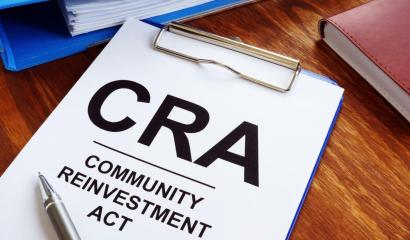
Amanda Khatri
Editorial Manager
What are the current US ESG regulations?
There was a time, not so long ago, when investment decisions were purely driven by financial outcomes. But now, environmental, social and governance factors, and their associated regulations, are continuing to gain momentum around the world.
While the US has been considerably slower than many other developed nations, there has been significant progress in recent years. The traditional approach has now been transformed by emerging ESG regulations to engage stakeholders and provide competition in the financial landscape.
What’s the purpose of ESG regulations?
ESG regulations are applied to the financial industry in order to bring attention to the environmental, social and governance impacts of investment opportunities.
Whether the regulatory focus is on sustainability, climate-related factors or supporting the people behind the companies, compliance aims to prevent greenwashing. This refers to the falsifying of environmental claims that pretend to be sustainable. ESG regulations also aim to make sustainable finance more accessible.
Moreover, they standardise the claims that companies are able to make about their businesses. This allows investors to gain a more accurate picture of the options available, and make more-informed financial decisions.
Current US ESG regulations
Across all of the regulatory bodies in the US, there are many references to ESG measures in various regulations. This piece will focus on the following four US ESG regulations:
- Nasdaq’s board diversity
- Reversal of Trump’s pecuniary factors
- SASB standards
- SEC’s climate-related disclosures
Nasdaq’s board diversity
Nasdaq is the US-based global marketplace for stocks and securities trading. In August 2021, they released new requirement criteria for companies to be listed on their exchanges. This was the diversity statistics at the board level for each company listing.
Nasdaq also set minimum criteria for diversity and required reasoning from every company that did not meet the minimum criteria. This is a governance factor which allows investors to see the breakdown of diversity at an executive level. It may help potential investors in making well-informed decisions.
Proposed reversal of Trump’s pecuniary factors
During the Trump Presidency, economic factors were considered more important than environmental factors. This meant that anybody who has authority over an investment or asset plan (such as a financial advisor or product owner) must focus on financial returns, and mitigate ESG information.
However, Biden’s administration is attempting to reverse or change this ruling so that while financial returns are still a priority, ESG factors are also considered. Under the US Department of Labor, ESG will complement other disclosures since it does impact the level of risk for investments. At a Federal level, this is one of the only sustainability or ESG measures being implemented.
SASB standards
The Sustainability Accounting Standards Board (SASB) was first launched in the US in 2011 with the aim to bring sustainability into accounting and business. In 2022, the organisation integrated with IFRS Foundation to create the International Sustainability Standards Board, as it’s now known.
The board includes ESG disclosures that are relevant to financial performance in 77 different industries. The primary factor for this approach is to enable companies and businesses to effectively communicate with investors and stakeholders on both financial and ESG matters.
SEC climate-related disclosures’
Finally, in March 2022 the Securities and Exchange Commission (SEC) announced its proposal for sustainable disclosure regulations. This is similar to the recent EU SFDR, with the proposed rules including risk-management processes for climate-related risks, for example.
Furthermore, the proposal requires the disclosure of GHG emissions from either side of the supply chain and certain reporting measures. As the SEC notes themselves, much of the compliance for those following the Taskforce on Nature-Related Disclosures will already be accepted.
Who must comply?
Broadly speaking, all companies in the financial services industry that are currently compelled to follow other regulations set by the SEC will be required to undergo these ESG changes. Specifically, the types of companies most often referred to include asset managers, issuers, and financial advisors.
To keep up-to-date with emerging regulations, using AI and horizon-scanning technology to automate the regulatory change management process can help to keep compliance costs down and mitigate non-compliance.
Identify compliance priorities with CUBE, contact us today.







